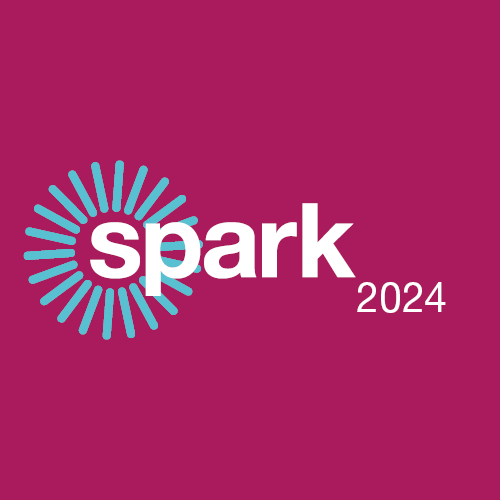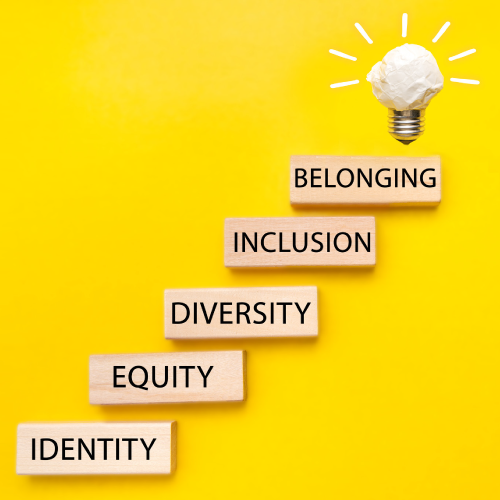June 8, 2025 – June 12, 2025
Save the date for the 2025 Executive Leadership Institute. Share your email to be notified about program updates and when registration is live.
This informational webinar about Social Current Impact Partnerships will feature a spotlight on the 2025 institute, Nov. 8 from 2-2:45 ET.
The Executive Leadership Institute (ELI), offered in partnership with Loyola University Chicago’s Quinlan School of Business, equips senior-level managers and executives with the knowledge and skills to oversee day-to-day operations, and prepare for the future and greater systems change. Transactional meets transformational for this influential experience.
ELI assembles a wide variety of faculty from the nonprofit and for-profit sectors, as well as academia. Social Current’s partnership with Quinlan means access to first-class faculty and specialized expertise, as well as the flexibility to create a program to transform students’ leadership skills. The curriculum will not only challenge, but offers a rare opportunity to focus on excellence, impact, and systems change.
ELI features 70 hours of content, where students learn through interactive presentations, small-group discussions, experiential learning tours of community-based organizations, personal reflection and journaling, and more. To help students reinforce and apply their learning, they also complete self-designed projects that addresses an organizational challenge. The presentations are given before the assembly of participants and faculty.
An additional benefit of the program is that students receive mentoring from ELI alumni. Mentors and mentees are matched according to personal and professional leadership attributes. Hundreds of human and social services leaders have graduated from the institute and they continue to engage through alumni opportunities.
Who Should Attend
- Executives
- Managers
- Directors
Hear from Alumni
In this video, Dr. Cha-Tanya Lankford, director of Delaware programs at Pressley Ridge shares how the ELI curriculum continues to shape her as a professional and leader.
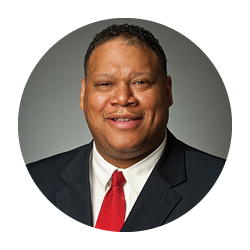 Undraye Howard, PhD
Undraye Howard, PhD
Vice President of Equity, Diversity, Inclusion, and Engagement
Undraye Howard currently serves as vice president of equity, diversity, and inclusion at Social Current. In his roles over the years, he has provided invaluable consultation to community-based organizations. In his current role, he leads Social Current’s efforts in providing strategy, solutions, and support for the development of leaders in the social sector, with an emphasis on equity, diversity, and inclusion (EDI). Through his strategic leadership and direction, he and a team of network leaders have co-created helpful resources, consultation, and workshops that uplift and disseminate best practices to help community-based organizations advance their EDI journeys.
In addition, Dr. Howard was instrumental in developing Social Current’s leadership development model, the rEvolutionary Model, which helps develop the skills of change leaders to drive toward system and population-level results. Dr. Howard also leads the annual Executive Leadership Institute, which is held in partnership with Loyola University’s Quinlan School of Business. This transformational experience equips leaders with the knowledge and skills to create greater systems change.
Dr. Howard also has a deep appreciation and connection to the greater Milwaukee community. He sits on the board of AD2LUV Senior Housing (2006-present), Father Hood Initiative (2012-present), and the board of Holy Cathedral (1999-present), where he also led as youth director and deacon. He also served as a member on the State of Wisconsin Strengthening Families and Children.
Dr. Howard holds a doctorate in business from Bellevue University. He received his master’s in communication and bachelor’s in business administration from the University of Wisconsin-Milwaukee.
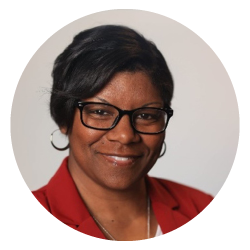 Robena Spangler
Robena Spangler
Senior Director of Leadership Development and Organizational Excellence
Robena Spangler is an innovative senior executive with over 30 years of experience in behavioral health, human services, and advancing equity and inclusion work. The majority of her career has been dedicated to systems improvement within the child welfare and juvenile justice systems. Spangler held several leadership roles in the public and private sectors. She has provided professional coaching and leadership development for teams and individuals on a national level. In addition to her public and private sector work, she is an adjunct instructor at Elizabethtown College in Pennsylvania in the School of Continuing and Professional Studies (SCPS), responsible for facilitating accelerated programs in human services for adult learners. Her current role, as an EDI and leadership strategist, is to design and manage all aspects of Social Current’s leadership and organizational excellence portfolio. Spangler holds a bachelor’s in sociology and human services along with a master’s in leadership and professional advancement.
Quinlan School of Business
Loyola University Chicago
820 N Michigan Ave.
Chicago IL, 60611
The Executive Leadership Institute takes place on Loyola’s Water Tower Campus.
Lodging
Hotel Felix
111 W. Huron St
Chicago IL, 60654
The Drake Hotel
140 East Walton Place
Chicago, IL 60611
Learn more about our special discounted rates.
Loyola University Chicago Water Tower Campus
May 13 @ 12:00 pm – May 17 @ 12:00 pm CDT
The Executive Leadership Institute (ELI), offered in partnership with Loyola University Chicago’s Quinlan School of Business, equips senior-level managers and executives with the knowledge and skills to oversee day-to-day operations, and prepare for the future and greater systems change. Transactional meets transformational for this influential experience.
ELI assembles a wide variety of faculty from the nonprofit and for-profit sectors, as well as academia. Social Current’s partnership with Quinlan means access to first-class faculty and specialized expertise, as well as the flexibility to create a program to transform students’ leadership skills. The curriculum will not only challenge, but offers a rare opportunity to focus on excellence, impact, and systems change.
ELI features 70 hours of content delivered over two concentrated sessions in consecutive years. The second half of the program culminates in the presentation of projects completed between the first and second sessions. The presentations are given before the assembly of participants and faculty.
Who Should Attend
- Executives
- Managers
- Directors
We also hope the ELI alumni will join the 2024 institute to reconnect with each other, meet the newest group of students, and engage around the future of the program. Learn more about the Alumni Connect opportunity May 16-17.
Hear from Alumni
In this video, Dr. Cha-Tanya Lankford, director of Delaware programs at Pressley Ridge shares how the ELI curriculum continues to shape her as a professional and leader.
Watch the full LinkedIn Live for more.
Monday, May 13
Welcome
Undraye Howard, PhD, Social Current
Vice President of Equity, Diversity, and Inclusion and Engagement
Amy Kyhos, Loyola University Chicago
Director of Executive and Professional Education Center
Crafting Organizational Excellence with Emotional Intelligence
Jody Levison-Johnson, PhD, LCSW, Social Current
President and CEO
In this session, Social Current President and CEO Jody Levison-Johnson will share her expertise on strategic leadership, change management, and fostering a culture of continuous improvement, particularly during times of constraint. Students will gain insights into how to navigate complexities, drive transformation, and lead with purpose to achieve sustainable success.
Discussion of DISC Assessments
Darrell Katz, Loyola University Chicago Quinlan School of Business
Adjunct Professor
ELI Second Year Student Project Presentations
Facilitator: Undraye Howard, Social Current
Leading in new and innovative ways is part of the social sector’s DNA. Being mission-responsive, using reflexive thought, and building emotional intelligence are core leadership development skills. How does one identify what leading from their inner core looks like? How do our innate qualities determine our leadership style? And once we understand our core motivations and leadership style, how do we inspire others within our organizations, communities, and sectors to lead and collaborate across networks and systems? It requires a new way of thinking and behaving. This session will explore new ways of framing leadership development by focusing on:
- Identifying intrinsic and extrinsic motivations
- Rethinking leadership from a core development mindset
- Highlighting leader behaviors that inspire, motivate, and empower others through collaboration
Dinner/Networking
Tuesday, May 14
Morning Motivations
Equip the Flip for Human Services Leaders
Robena Spangler, MS, Social Current
Senior Director of Leadership Development/Organizational Excellence
Trinka Landry-Bourne, DPA, American Public Human Services Association
Organizational Effectiveness Consultant Leadership Development
Break
Equip the Flip: Voices from the Field ELI Focus Groups
Robena Spangler, Social Current
Trinka Landry-Bourne, American Public Human Services Association
Social Current and the American Public Human Services Association have joined together to create a new leadership framework for human services. The framework’s competencies will be infused throughout human services organizations to instill patterns of behavior that will make the flip to shift power to the community. This session includes a “Voices from the Field” focus group activity designed especially for Executive Leadership Institute students.
Chat & Chew
Lunch and video call with ELI Alumni Board and other graduates
The Social Sector Workforce’s Resilience in a Post-Pandemic Environment
Session led by Loyola University Chicago
Social Sector leaders consistently face adversity, as core needs and resources evolve to reflect broader changes in society. Growing personal and organizational resilience is paramount in developing sustainable pathways for social impact. This session will emphasize leadership and management practices and approaches for building resilience and ensuring persistence.
Dine-Around Networking Dinners
Students form networking groups of 6-8 peers for deeper conversations; reservations and sign-up sheets will be provided
Wednesday, May 15
Morning Motivations
Facilitator: Robena Spangler, Social Current
Reconvene to debrief on the previous night’s networking dinner discussions.
Strategic Partnering: Is There an Alternative to Mergers and Acquisitions?
Mike Bertrand, Lutheran Child and Family Services of Illinois
President and CEO
Carl Clark, Devereux Advanced Behavioral Health in Villanova, Pennsylvania
President/CEO
Social sector CEOs are leading in new and innovative ways. Strategic partnerships can be arrangements between two or more organizations with like-minded visions and missions that agree to support each other in an effort to help all parties succeed. In this session, students will get an answer to this question and more from chief executives who are addressing today’s social sector challenges.
Lunch
Depart for Study Tour
Roundtrip travel via coach bus
Study Tour: UCAN
UCAN – The Power of Potential – strives to build strong youth and families through compassionate healing, education, and empowerment. UCAN changes lives through impactful programs, consistent presence and unrivaled diversity and inclusion. UCAN serves and impacts over 9100 historically underrepresented children, youth, and families across Illinois.
Afternoon and Dinner on Your Own
Thursday, May 16
All Alumni are invited to join for the day to audit lectures and participate in graduation.
Morning Motivations
Understanding Artificial Intelligence and How We Can Use It in the Social Sector
Andy Kaufman, Loyola University Chicago Quinlan School of Business
Adjunct Instructor
As artificial intelligence (AI) continues to evolve and develop, social sector leaders must grapple with its usages, impacts, and challenges. During this discussion, you will consider AI’s potential to accelerate and streamline social impact, while being introduced to practical tools for immediate use on projects, workflows, and deliverables.
Lunch
The Social Enterprise and A Financial Model for Us
Mary Hollie, Glenwood Academy
President and CEO
How does the social sector continue to meet its mission and foster fiscal sustainability? Governmental contracts, traditional fundraising, and resource development can only go so far on sustainability. Join sector thought leader Mary Hollie as she discusses and presents various sustainable funding models, including the role of philanthropy and the development of private/public partnerships and performance-based funding models as a viable approach to sector sustainability.
Graduation and Dinner Reception
Friday, May 17
Morning Motivations
Brandon Pendleton, Loyola University Chicago Quinlan School of Business
Adjunct Professor
Wellness for Leaders and Teams
Brandon Pendleton – Loyola University Chicago
Adjunct Professor, Quinlan School of Business
As the 2024 Executive Leadership Institute wraps up, students will take a moment to pause and reflect on the foundation of their impact—their own well-being. During this motivational session, participants will learn the importance of implementing wellness practices in their lives, as well as ideas and resources for providing safe spaces that cultivate connection and allow all team members to thrive.
Break
Tying It All Together: What Did We Learn this Week?
For Alumni
Alumni Town Hall
The goal of the town hall is to provide a space for networking and an exchange of ideas for maintaining strong alumni connections. We are particularly interested in hearing from you about ways to effectively recruit and retain candidates for a successful future of the Executive Leadership Institute.
 Undraye Howard, PhD
Undraye Howard, PhD
Vice President of Equity, Diversity, Inclusion, and Engagement
Undraye Howard currently serves as vice president of equity, diversity, and inclusion at Social Current. In his roles over the years, he has provided invaluable consultation to community-based organizations. In his current role, he leads Social Current’s efforts in providing strategy, solutions, and support for the development of leaders in the social sector, with an emphasis on equity, diversity, and inclusion (EDI). Through his strategic leadership and direction, he and a team of network leaders have co-created helpful resources, consultation, and workshops that uplift and disseminate best practices to help community-based organizations advance their EDI journeys.
In addition, Dr. Howard was instrumental in developing Social Current’s leadership development model, the rEvolutionary Model, which helps develop the skills of change leaders to drive toward system and population-level results. Dr. Howard also leads the annual Executive Leadership Institute, which is held in partnership with Loyola University’s Quinlan School of Business. This transformational experience equips leaders with the knowledge and skills to create greater systems change.
Dr. Howard also has a deep appreciation and connection to the greater Milwaukee community. He sits on the board of AD2LUV Senior Housing (2006-present), Father Hood Initiative (2012-present), and the board of Holy Cathedral (1999-present), where he also led as youth director and deacon. He also served as a member on the State of Wisconsin Strengthening Families and Children.
Dr. Howard holds a doctorate in business from Bellevue University. He received his master’s in communication and bachelor’s in business administration from the University of Wisconsin-Milwaukee.
 Robena Spangler
Robena Spangler
Senior Director of Leadership Development and Organizational Excellence
Robena Spangler is an innovative senior executive with over 30 years of experience in behavioral health, human services, and advancing equity and inclusion work. The majority of her career has been dedicated to systems improvement within the child welfare and juvenile justice systems. Spangler held several leadership roles in the public and private sectors. She has provided professional coaching and leadership development for teams and individuals on a national level. In addition to her public and private sector work, she is an adjunct instructor at Elizabethtown College in Pennsylvania in the School of Continuing and Professional Studies (SCPS), responsible for facilitating accelerated programs in human services for adult learners. Her current role, as an EDI and leadership strategist, is to design and manage all aspects of Social Current’s leadership and organizational excellence portfolio. Spangler holds a bachelor’s in sociology and human services along with a master’s in leadership and professional advancement.
Quinlan School of Business
Loyola University Chicago
820 N Michigan Ave.
Chicago IL, 60611
The Executive Leadership Institute takes place on Loyola’s Water Tower Campus.
Lodging
Hotel Felix
111 W. Huron St
Chicago IL, 60654
The Drake Hotel
140 East Walton Place
Chicago, IL 60611
Learn more about our special discounted rates.
Loyola University Chicago Water Tower Campus
Pricing
- Impact Partners (Formerly Engagement Packages) and/or Organizations that Have Achieved COA Accreditation: $4,750
- Other Organizations: $5,750
Cancellation Policy
Cancellation by Participant: All cancellation requests must be made in writing. Conference cancellations are subject to a $500 processing fee. Cancellation requests received after April 29 will not be refunded. Credit toward future Social Current events is not currently possible. Participants unable to attend the Institute may send an alternate participant. Exceptions to this cancellation policy may be made for those who have or suspect they have COVID-19. Notice of written cancellation or alternate participant requests must be emailed directly to Social Current.
Cancellation by Social Current: If Social Current cancels this conference, all registration fees will be refunded in full.
Registration Form
Please complete and submit the registration form below and someone will follow up to finalize your registration.
May 15, 2023 @ 8:00 am – May 19, 2023 @ 5:00 pm EDT
The deadline to register is April 30.
The Executive Leadership Institute (ELI), offered in partnership with Loyola University Chicago’s Quinlan School of Business, equips senior-level managers and executives with the knowledge and skills to oversee day-to-day operations, and prepare for the future and greater systems change. Transactional meets transformational for this influential experience.
ELI assembles a wide variety of faculty from the nonprofit and for-profit sectors, as well as academia. Social Current’s partnership with Quinlan means access to first-class faculty and specialized expertise, as well as the flexibility to create a program to transform students’ leadership skills. The curriculum will not only challenge, but offers a rare opportunity to focus on excellence, impact, and systems change.
ELI features 70 hours of content delivered over two concentrated sessions in consecutive years. The second half of the program culminates in the presentation of projects completed between the first and second sessions. The presentations are given before the assembly of participants and faculty.
Monday, May 15
Tuesday, May 16
| 8:30 a.m. | Leadership in a Post-Pandemic, Post-Everything World Part One
Katie Alexander, Assistant Professor of Management at Quinlan School of Business Loyola University Chicago How should nonprofit leaders lead in these times? What do leadership examples and traits from other sectors teach us about how we should lead our organizations? In this session, we will explore how we can be more effective leaders in and outside of our organizations, anticipating and taking advantage of trends, opportunities and challenges in a rapidly changing and uncertain environment. |
| 1:00 p.m. | Study Tour: Gary Comer Center Where Innovation Meets MissionThe Gary Comer Youth Center is an innovative example of community commitment. Recognized as one of the nation’s most unique youth-serving organizations, GCYC is proud of the creative pathways provided via academic success, enrichment, and college and career preparation. |
| 3:30 p.m. | Leadership in a Post-Pandemic, Post-Everything World Part Two
Katie Alexander, Assistant Professor of Management at Quinlan School of Business Loyola University Chicago How should nonprofit leaders lead in these times? What do leadership examples and traits from other sectors teach us about how we should lead our organizations? In this session, we will explore how we can be more effective leaders in and outside of our organizations, anticipating and taking advantage of trends, opportunities and challenges in a rapidly changing and uncertain environment.
|
Wednesday, May 17
| 8:30 a.m. | Financial Modeling and Analysis
Charles Montorio-Archer, PhD., Esq., MPA, President & CEO, One Hope United In these times of scarce resources and increased demand for our services, financial sustainability is not just the focus of the finance and fundraising teams of a nonprofit. Rather, increasingly, program and other staff need to also consider finances in their work. What are some of the key metrics that should be considered for a department’s and organization’s financial health? How do we develop and manage reasonable, yet ambitious, budgets to grow our mission? This session will answer these questions and more. |
| 1:00 p.m. | Strategic Planning is Dead. Long Live the Strategic Plan
Eric Weinheimer, Loyola Lead Faculty Strategic planning is a key tool for any organization that wants to grow and succeed. But increasingly, organizations are questioning the value of 3- or 5-year strategic plans, given the fast pace of change and innovation. How can we plan given such uncertainty? How do we stay nimble and entrepreneurial, and yet ensure that everyone understands our strategic priorities and goals? |
| 3:30 p.m. | Caring for Your Most Precious Asset
Loyola University Remote work. Mental health days. Self-care. Competitive wages. Flexible hours. A vibrant work culture. What is the right mix of benefits and supports for your staff so that they feel empowered to do their difficult work? We will explore the cutting-edge ways that we can nurture our teams to higher levels of job satisfaction in this competitive labor market, ultimately leading to better care for our clients. |
Thursday, May 18
| 8:30 a.m. | How to Become a High Performing Nonprofit Board
Dennis C. Miller, Founder & Chairman, DCM Associates Inc. Most nonprofit organizations have great causes and powerful missions that are being advanced through the efforts of dedicated professionals, board members, donors and volunteers. Everyone has high hopes and dreams for their organization and is very proud to be associated with it. Yet far too many still struggle to achieve the level of excellence their mission requires. One of the key responsibilities of every nonprofit CEO and Board Chair is to engage and motivate their board and leadership team to be passionate about serving their mission and achieving their strategic vision. The following are the key discussion topics for this course:
|
| 1:00 p.m. | Public Policy for Sector Leaders
Blair Abelle-Kiser Ph.D. She/Her, Senior Director of Government Affairs, Social Current The need for human services nonprofits often is the result of unjust and inequitable laws and systems that have marginalized communities for decades. Substantial progress in rectify those inequities will only come through legislation and policies. This session will discuss and explain the value that public policy advocacy can provide to human service nonprofits in furthering their mission. Concrete action steps will be suggested to help nonprofits advocate for their causes in thoughtful and effective ways. |
Friday, May 19
| 9 a.m.-Noon | Final Wrap Up and Connecting the Dots for the Future
Eric Weinheimer & Undraye Howard |
| Afternoon | Departures |
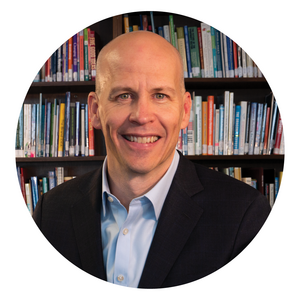 Eric Weinheimer
Eric Weinheimer
Senior Vice President and Philanthropic Strategist, Bank of America
Eric Weinheimer is a senior vice president and philanthropic strategist for the National Consulting and Advisory Practice at Bank of America Private Bank, based in Chicago. In this role, Eric delivers customized consulting and advisory services to nonprofit clients’ boards of directors and senior leaders. His areas of expertise include strategic planning, board governance, revenue diversification, and social enterprise. He also has extensive experience in working with high-net worth individuals and families in identifying and achieving their philanthropic goals.
Previously, Eric served as president and CEO of Forefront, a regional association of grantmakers, nonprofits, advisors, social entrepreneurs, and impact investors. He was also president and CEO of The Cara Program, a nonprofit organization that provides comprehensive training, job placement, and support services to individuals who are homeless and experiencing poverty. During Eric’s tenure, The Cara Program founded and established three social enterprises, including Cleanslate Chicago. He has also served as interim CEO for nonprofits that have experienced significant internal challenges and crises.
Eric earned a bachelor’s from Boston College and a master’s in business administration from The University of Chicago Booth School of Business, where he was awarded the Distinguished Alumni Award for Public Service. Eric serves on the advisory board for Booth’s Rustandy Center for Social Sector Innovation and the Leadership Council for the Baumhart Center at Loyola University Chicago. He also serves on the boards of directors for Growing Community Media, the Network for Young Adult Success, and the Economic Club of Chicago.
We look forward to holding the 2023 Executive Leadership Institute in person at the University of Loyola Chicago.
Lodging
The Drake Hotel (Special Discounted Rate Available. Select hotel to book.)
140 East Walton Place
Chicago, IL 60611
Hampton Inn Chicago Downtown/Magnificent Mile
160 E. Huron Street
Chicago, IL 60661
Hotel Felix (Special Discounted Rate Available. Select hotel to book.)
111 W. Huron St
Chicago IL, 60654
Sofitel Chicago Magnificent Mile
20 E Chestnut St,
Chicago, IL 60611
Talbott Hotel
20 E Delaware Place
Chicago, IL 60611
Location
Quinlan School of Business
Loyola University Chicago
Water Tower Campus
111 E Pearson St
Chicago, IL 60611
Note: The Executive Leadership Institute will take place on the Water Tower Campus.
Loyola University Chicago Water Tower Campus
Who Should Attend
- Executives
- Managers
- Directors
Price
- Organizations that have engagement packages or are COA accredited: $4750
- Other organizations: $5750
Cancellation Policy
All cancellation requests must be made in writing. Cancellation requests received by May 1 will be eligible for a full refund. Cancellation requests received after May 1 will not be refunded. Instead, registrants may use the cost of registration as a credit toward future Social Current offerings. Notice of written cancellation must be emailed directly to Social Current.
Registration Form
Please complete and submit the registration form below by April 30th and someone will follow up to finalize your registration.
While there are many ways to build your organization’s capacity for equity, diversity, and inclusion (EDI), they all require an overarching commitment and investment. With limited resources and many priorities, some may wonder if there is really a tangible ROI to EDI efforts.
Well, just look at the data.
Research compiled by the Performance Excellence Network shows that investing your organization’s time and resources in EDI strategies can support your business, in addition to your mission. Highlights from that research include:
- The top quartile of diverse companies is more likely to financially outperform national industry means – 35% for ethnic diversity, 15% of gender diversity (McKinsey)
- Employees in highly diverse and inclusive organizations show 26% more team collaboration and 18% more team commitment than those in non-inclusive organizations (CEB/Gartner)
- Inclusive companies are three times more likely to retain millennials for more than five years (Deloitte)
So now what?
To ensure that your investment leads to real change at your organization, make sure you receive the right level of support you need. One unique opportunity that can help you build and sustain momentum toward your goals is our upcoming EDI Learning Collaborative. Participants will collaborate with peers at other organizations in a supportive environment and receive guidance from EDI experts in developing, implementing, and advancing their equity work. This collaborative offers continual support over a 15-month period.
Apply by submitting the online application by June 30.
Our three-part virtual workshop offers learning and support to participants over the course of a month. It combines valuable information, facilitated discussions, reflection opportunities, and focused work time to begin developing an EDI action plan. We recommend sending multiple staff who serve on your EDI committee or advance EDI in other ways. This workshop will provide the tools, guidance, and dedicated time they need to be successful.
Register now for our upcoming June session (June 9, 16, and 23). Additional sessions are being offered in September/October and November.
November 16, 2021 @ 12:00 pm – 4:00 pm EST
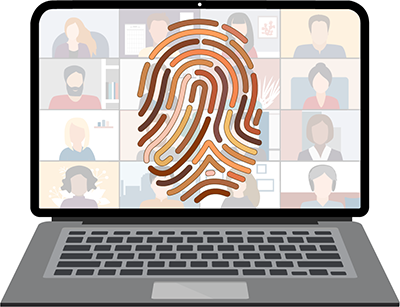
November Session: Nov. 2, 9, 16
Programming is offered each day from noon-4 p.m. ET with two short breaks.
Participation Rates
- Workshop: $650
- Intercultural Development Inventory® (IDI®): $288
Given the continued emergence of an interconnected society, a global pandemic, and protests and unrest calling for racial justice, building organizational capacity for advancing equity, diversity, and inclusion is more critical than ever. The need for leaders within social sector organizations to understand and engage the current environment is essential in building an equitable society for all.
This journey begins by ensuring all people feel valued at work. It mandates the co-creation of an inclusive workforce that can foster the development of a healthy, productive, and peaceful society in which all people can participate and reach their full potential.
During this virtual workshop presented by Social Current, participants will explore their relationships with equity, diversity, and inclusion (EDI) in a safe environment and make progress on developing an EDI action plan for their organizations.
Because advancing EDI requires more than just basic knowledge and the will to improve, presenters will help participants understand their own biases as well as the role of historical discrimination, non-inclusive behavioral actions, and culture in creating an unjust society.
The workshop will include presentations of valuable information, facilitated discussions, reflection opportunities, and dedicated planning time. In addition to learning about core concepts, participants will put ideas into action with facilitated planning time. Everyone will have the opportunity to begin developing action plans for advancing their organizations’ EDI journeys. As such, organizations are encouraged to send multiple employees that together can develop or work on current EDI plans for advancement.
About the Intercultural Development Inventory® (IDI®)
To be equipped to advance equity within your community, organization, and beyond, it is essential to also understand and advance your personal journey. Enhance your participation in this workshop with the Intercultural Development Inventory® (IDI®), which provides valuable and actionable information about your own mindset/skillset toward cultural difference and commonality. The IDI®, a 50-item online questionnaire, has been developed and tested using rigorous cross-culturally validated psychometric protocols with over 220,000 respondents from a wide range of cultural groups and countries.
Add this assessment to your workshop registration to receive practical and in-depth information. Individuals will receive a customized IDI® Individual Profile Report and participate in a 60-minute one-on-one debrief session with Alliance-COA Director of Evaluation and Research Phyllis Richards to discuss their results and develop a plan to meet their personal intercultural development goals. Richards is a qualified administrator of the IDI® and has more than a decade of experience in working collaboratively to address systemic racism and improve cultural competency.
- How EDI has changed over time within the U.S. as a result of legislation
- Understand the skills needed to advance your EDI personal journey
- How biases, racism, and incivility are barriers to building an EDI-enriched workplace culture
- Understand their organization’s phase of EDI maturity, and how to move to the next phase
- A multi-faceted approach for co-creating an organizational culture that fosters EDI
- Options for addressing critical current issues
- How to structure an organizational plan to advance EDI using results-based strategies
- Create the skeleton plan with facilitator support
- Staff responsible for diversity, equity, and inclusion
- Human resources professionals
- Organizational development professionals
- Executives
- Board members
- Executive search firms
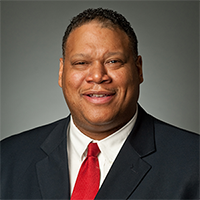
Undraye Howard, PhD
Senior Director of Equity, Diversity, Inclusion, and Engagement, Alliance-COA
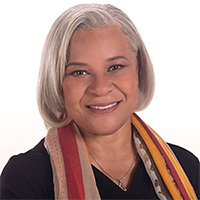
Sheryl White, PhD
Vice President of Training and Organizational Development, Neighborhood House Association
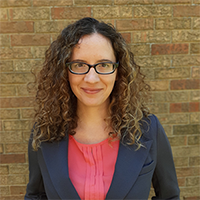
Jerica Broeckling, M.A.
Engagement Partner
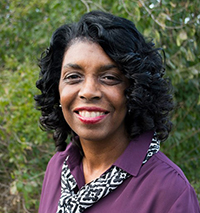
Phyllis Richards, M.A., M.S.
Director of Evaluation and Research Services, Alliance-COA
Related Events
December 7, 2021 @ 12:00 pm – 1:00 pm EST

Many organizations recognize the need to lead from a deep and genuine culture of race equity. This starts with people—emerging leaders, senior leaders, board members, and more—growing individually and in their respective roles. However, it can be difficult to know where to start in advancing equity, diversity, and inclusion (EDI). Simply mandating or promoting EDI in the workplace is not enough. To realize the benefits, organizations must treat EDI as any other critical resource and commit to building the right infrastructure to support it.
Advancing EDI internally requires more than just the knowledge and will to act. Staff must also understand the multiple ways in which bias unconsciously manifests in our daily lives and working relationships. Building on brain function research and behavioral science, participants will learn about the bias traps we fall into, what causes them, and what can work to reduce and/or eliminate them.
What You’ll Take Away
- The foundations of implicit bias in brain function and culture
- Common ways that implicit bias is present in the workplace
- Self-reflection on potential biases and strategies to begin reducing them
Who Should Participate
- Organization staff
- Public policy staff
- Community advocates
Presenters

Jerica Broeckling
Engagement Partner

Phyllis Richards
Director of Equity, Diversity, and Inclusion and Research
Social Current
Related Events
November 9, 2021 @ 12:00 pm – 4:00 pm EST

November Session: Nov. 2, 9, 16
Programming is offered each day from noon-4 p.m. ET with two short breaks.
Participation Rates
- Workshop: $650
- Intercultural Development Inventory® (IDI®): $288
Given the continued emergence of an interconnected society, a global pandemic, and protests and unrest calling for racial justice, building organizational capacity for advancing equity, diversity, and inclusion is more critical than ever. The need for leaders within social sector organizations to understand and engage the current environment is essential in building an equitable society for all.
This journey begins by ensuring all people feel valued at work. It mandates the co-creation of an inclusive workforce that can foster the development of a healthy, productive, and peaceful society in which all people can participate and reach their full potential.
During this virtual workshop presented by Social Current, participants will explore their relationships with equity, diversity, and inclusion (EDI) in a safe environment and make progress on developing an EDI action plan for their organizations.
Because advancing EDI requires more than just basic knowledge and the will to improve, presenters will help participants understand their own biases as well as the role of historical discrimination, non-inclusive behavioral actions, and culture in creating an unjust society.
The workshop will include presentations of valuable information, facilitated discussions, reflection opportunities, and dedicated planning time. In addition to learning about core concepts, participants will put ideas into action with facilitated planning time. Everyone will have the opportunity to begin developing action plans for advancing their organizations’ EDI journeys. As such, organizations are encouraged to send multiple employees that together can develop or work on current EDI plans for advancement.
About the Intercultural Development Inventory® (IDI®)
To be equipped to advance equity within your community, organization, and beyond, it is essential to also understand and advance your personal journey. Enhance your participation in this workshop with the Intercultural Development Inventory® (IDI®), which provides valuable and actionable information about your own mindset/skillset toward cultural difference and commonality. The IDI®, a 50-item online questionnaire, has been developed and tested using rigorous cross-culturally validated psychometric protocols with over 220,000 respondents from a wide range of cultural groups and countries.
Add this assessment to your workshop registration to receive practical and in-depth information. Individuals will receive a customized IDI® Individual Profile Report and participate in a 60-minute one-on-one debrief session with Alliance-COA Director of Evaluation and Research Phyllis Richards to discuss their results and develop a plan to meet their personal intercultural development goals. Richards is a qualified administrator of the IDI® and has more than a decade of experience in working collaboratively to address systemic racism and improve cultural competency.
- How EDI has changed over time within the U.S. as a result of legislation
- Understand the skills needed to advance your EDI personal journey
- How biases, racism, and incivility are barriers to building an EDI-enriched workplace culture
- Understand their organization’s phase of EDI maturity, and how to move to the next phase
- A multi-faceted approach for co-creating an organizational culture that fosters EDI
- Options for addressing critical current issues
- How to structure an organizational plan to advance EDI using results-based strategies
- Create the skeleton plan with facilitator support
- Staff responsible for diversity, equity, and inclusion
- Human resources professionals
- Organizational development professionals
- Executives
- Board members
- Executive search firms

Undraye Howard, PhD
Senior Director of Equity, Diversity, Inclusion, and Engagement, Alliance-COA

Sheryl White, PhD
Vice President of Training and Organizational Development, Neighborhood House Association

Jerica Broeckling, M.A.
Engagement Partner

Phyllis Richards, M.A., M.S.
Director of Evaluation and Research Services, Alliance-COA
Related Events
November 2, 2021 @ 11:00 am – 3:00 pm CDT

Programming is offered each day from 11 a.m.-3 p.m. CT with two short breaks.
Participation Rates
- Workshop: $650
- Intercultural Development Inventory® (IDI®): $288
Given the continued emergence of an interconnected society, a global pandemic, and protests and unrest calling for racial justice, building organizational capacity for advancing equity, diversity, and inclusion is more critical than ever. The need for leaders within social sector organizations to understand and engage the current environment is essential in building an equitable society for all.
This journey begins by ensuring all people feel valued at work. It mandates the co-creation of an inclusive workforce that can foster the development of a healthy, productive, and peaceful society in which all people can participate and reach their full potential.
During this virtual workshop presented by Social Current, participants will explore their relationships with equity, diversity, and inclusion (EDI) in a safe environment and make progress on developing an EDI action plan for their organizations.
Because advancing EDI requires more than just basic knowledge and the will to improve, presenters will help participants understand their own biases as well as the role of historical discrimination, non-inclusive behavioral actions, and culture in creating an unjust society.
The workshop will include presentations of valuable information, facilitated discussions, reflection opportunities, and dedicated planning time. In addition to learning about core concepts, participants will put ideas into action with facilitated planning time. Everyone will have the opportunity to begin developing action plans for advancing their organizations’ EDI journeys. As such, organizations are encouraged to send multiple employees that together can develop or work on current EDI plans for advancement.
About the Intercultural Development Inventory® (IDI®)
To be equipped to advance equity within your community, organization, and beyond, it is essential to also understand and advance your personal journey. Enhance your participation in this workshop with the Intercultural Development Inventory® (IDI®), which provides valuable and actionable information about your own mindset/skillset toward cultural difference and commonality. The IDI®, a 50-item online questionnaire, has been developed and tested using rigorous cross-culturally validated psychometric protocols with over 220,000 respondents from a wide range of cultural groups and countries.
Add this assessment to your workshop registration to receive practical and in-depth information. Individuals will receive a customized IDI® Individual Profile Report and participate in a 60-minute one-on-one debrief session with Alliance-COA Director of Evaluation and Research Phyllis Richards to discuss their results and develop a plan to meet their personal intercultural development goals. Richards is a qualified administrator of the IDI® and has more than a decade of experience in working collaboratively to address systemic racism and improve cultural competency.
- How EDI has changed over time within the U.S. as a result of legislation
- Understand the skills needed to advance your EDI personal journey
- How biases, racism, and incivility are barriers to building an EDI-enriched workplace culture
- Understand their organization’s phase of EDI maturity, and how to move to the next phase
- A multi-faceted approach for co-creating an organizational culture that fosters EDI
- Options for addressing critical current issues
- How to structure an organizational plan to advance EDI using results-based strategies
- Create the skeleton plan with facilitator support
- Staff responsible for diversity, equity, and inclusion
- Human resources professionals
- Organizational development professionals
- Executives
- Board members
- Executive search firms

Undraye Howard, PhD
Senior Director of Equity, Diversity, Inclusion, and Engagement, Alliance-COA

Sheryl White, PhD
Vice President of Training and Organizational Development, Neighborhood House Association

Jerica Broeckling, M.A.
Engagement Partner

Phyllis Richards, M.A., M.S.
Director of Evaluation and Research Services, Alliance-COA
Related Events
October 26, 2021 @ 3:00 pm – 4:00 pm CDT
As fundraisers and marketers, we can play a powerful role in dismantling racism. Our messages influence our communities. Our language can help shape policy. Our words carry currency. How we talk about it matters. Every philanthropic and nonprofit organization has an extraordinary opportunity and responsibility to do better. Frankly, society’s need for many of the programs and services provided by the human-serving sector stems from systemic racism. Until we name that, we cannot create the real and lasting change with families and communities that our mission statements loftily promise.
For an organization to put equity at the center of its mission, values, and leadership, it must look deeply into all aspects of agency operations—including fundraising and marketing. Guided by two expert fundraising and marketing professionals, this webinar will candidly explore how the language of fundraising, use of illustrations, and characterizations of clients can contribute to their marginalization and oppression. We also will discuss strategies and tactics that likely reinforce negative attitudes by donors towards those in the community served. Special emphasis will be given to the problems that have been perpetuated because of the overwhelming lack of diversity among professionals in the field, evident in the majority percentage of fundraisers who are white (79%).
Topics for discussion will include:
- Moving to community-centric instead of donor-centric fundraising
- Honoring clients’ life experiences and hard work in partnering with organizations and donors
- Hiring fundraising and marketing staff of color proportionate to communities served
- Using language, illustrations, and photos that honor and represent our communities
- Involving the whole organization and board members in supporting equity, diversity, and inclusion
- Authentically engaging with all organizations in the community, particularly the NAACP, Urban League, LGBT centers, and other local or regional groups
- Implementing a sample list of effective steps to avoid a repeat the failures described in the 1968 Report of the National Advisory Commission on Civil Disorders (i.e., the Kerner Commission Report)
- Talking with funders about supporting equity in your community with their investment
The presenters will share the knowledge gained from their experiences in highly diverse communities. All have made strides toward greater equity, diversity, and inclusion in their organizations and will offer practical solutions. Both are white leaders who are committed to using their voices and their privilege to become better allies.
Participants will be encouraged to share their stories of success, however large or small. The presenters will invite questions throughout the session to ensure there is clarity and a diversity of ideas for solutions discussed. A custom toolkit of action items, checklists, and tips to advance equity in marketing and fund development will be distributed.
This presentation is sponsored by the Alliance-COA’s Fundraising, Marketing, and Communications Peer Exchange, which serves as a place to make connections, share ideas, and ask questions among professionals working in fund development, marketing, communications, and public relations. Participants in this community also have access to a comprehensive library of resources, including a variety of materials on multiple topics designed to assist with creating a fund development plan, engaging board members in fundraising, building a brand strategy, and staying current with ever-changing digital trends, among many other vital fundraising, marketing, and communications functions.
What You’ll Take Away
- Resources for beginning your own EDI journey and centering your work through an EDI lens, including opportunities to consider how you have or plan to abandon stereotypes in your communications and how to have honest conversations with donors about racism
- A deeper understanding of the critical role organizational communications play in shaping the perceptions of the organization held by clients, philanthropic donors, contracting entities, public and private marketing partners, and the public
- Appreciation for the corrective actions needed for stereotypes among clients and these stakeholders
- Awareness of fundraising, marketing, and communications’ role and responsibility in ensuring authentic EDI engagement across the organization; these include assessments, services, outreach, and especially staffing representative of the makeup of the community, e.g., POC, API, indigenous peoples, First Americans, LGBTQAI+
Who Should Join
- Chief development officers
- Fund development staff
- Marketing staff
- Chief executives
- COOs
- Board members
Presenter
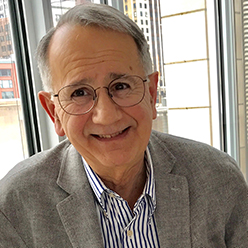
Leonard P. Iaquinta
Principal
Len Iaquinta’s Excellence in Communications Inc.
Len Iaquinta is a career fundraiser of millions of dollars in major gifts, grants, and periodic funds. Recognized as a strategic thinker, he is passionate about improving the culture of philanthropy. He augments the performance of nonprofit organizations in fund development and public communication. Iaquinta advises the Nonprofit Development Certificate Programs of the University of Wisconsin-Parkside and teaches six-hour modules. He often presents regional and national workshops. Iaquinta is a past two-term board member and a 20-year member of the steering committee of the Fundraising, Marketing and Communications Peer Exchange of Alliance-COA.
Following study at Northwestern University (B.S.J.) and Columbia University in the City of New York (M.S.J.), he joined the Academy for Educational Development in New York City. There he raised funds from the U.S. government and private foundations and staffed projects including the reporting of human behavior, minority recruitment into journalism, and higher education management.
He led the United Way of his hometown and devoted 30 years to successful university fundraising and alumni programming at his alma maters and public campuses. As a board member and officer, he has led human development services agencies to improve their philanthropic performance and enhance their public reputations during his 52-year career. Iaquinta has been a leader in the LGBTQAI+ community since 1971.
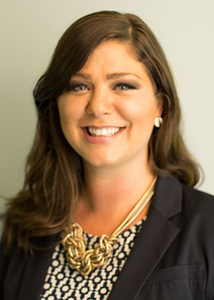
Jocelyn Mourning
Vice President of Advancement
The Family Conservancy
Jocelyn Mourning is a fundraising and communications expert focused on helping children grow up in healthy communities with thriving families so they may experience well-being throughout their lives. She is passionate about Kansas City families and was born and raised in the KC Metro. Mourning has been overseeing the increasingly successful fundraising events, grants, and other donor relations at The Family Conservancy, a 140-year-old nonprofit, since 2012.
She holds a fundraising certificate from the Midwest Center for Nonprofit Leadership at the University of Missouri – Kansas City’s Bloch School of Management, is a CFRE (Certified Fund Raising Executive), and also has marketing and sales experience in the for-profit sector. Mourning is co-chair of the Fundraising, Marketing, and Communications Alliance-COA Peer Exchange Group core team.
Related Events
From President Biden’s clear call for unity to poet laureate Amanda Gorman’s impassioned reading of her poem “The Hill We Climb,” this morning’s inauguration ceremony delivered the unifying message our country desperately needs to move forward to create a just and equitable society where all people and communities flourish.
Today, on his first day in office, President Biden signed 17 executive orders on issues ranging from the COVID-19 crisis and the economy, to climate change and racial justice. We were pleased to see an executive order on advancing racial equity and supporting underserved communities. This order creates a whole-of-government initiative to advance racial equity, directing federal agencies to undertake a baseline review of the state of equity within their agencies, launches an equitable data working group, and directs agencies to engage with communities who have been historically underrepresented, underserved, and discriminated against in federal policies. Importantly, this executive order revokes the previous administration’s order that limited the ability of federal government agencies, contractors, and grantees from implementing critical diversity and inclusion training. The Alliance for Strong Families and Communities co-led a letter, signed by 41 other organizations, opposing the original Trump executive order in October of 2020.
We also applaud actions taken today to prevent workplace discrimination on the basis of sexual orientation or gender identity, the extension of the moratorium on evictions and foreclosures until at least March 31, and the extension of the pause on student loan payments until at least Sept. 30. At a time when our economy is struggling, these actions will provide needed relief and begin to move our country in the right direction. While these are only first steps on so many critical issues, they represent the actions required to power us forward…together.
The Alliance for Strong Families and Communities is merging with the Council on Accreditation to form a new organization that will convene and catalyze a dynamic, inclusive, multifaceted network of human and social services organizations and passionate allies committed to achieving greater impact in communities across our country.
The inauguration and President Biden’s address this morning has led to feelings of hope and optimism as we work together to create this new collaborative and unified organization. Our job now is to rally and inspire our community of social heroes and essential workers. Our responsibility, as a social sector, must be to continue efforts to work together to address the larger needs in our nation.
Today, more than ever, we look forward to engaging our network and harnessing the power of the social sector to create a brighter bolder future.
Sincerely,

Jody Levison-Johnson
President and CEO
Alliance and COA


